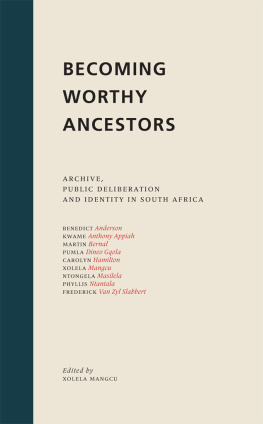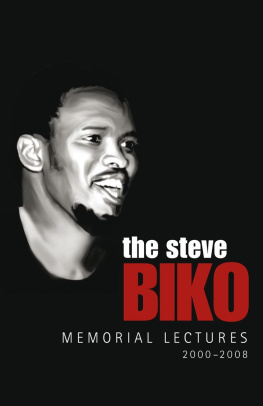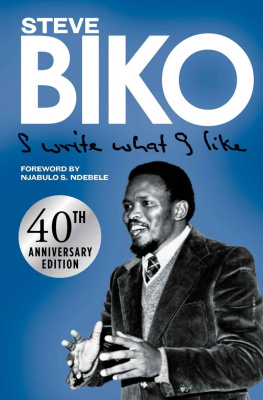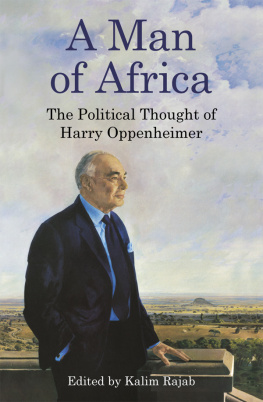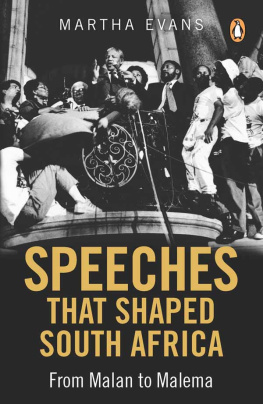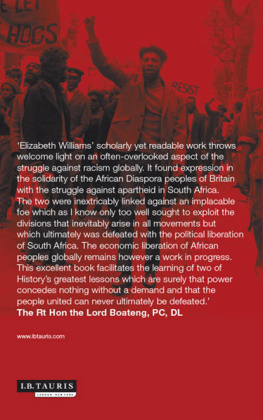Xolela Mangcu is an internationally respected analyst and commentator. He is based at the University of Cape Town and is also a Senior Fellow at the Brookings Institution in Washington D.C.
To the memory
of
Mrs Alice Nokuzola Biko MamCethe
for giving up her beloved son so we could be free

Published in 2014 by I.B.Tauris & Co. Ltd
6 Salem Road, London W2 4BU
175 Fifth Avenue, New York NY 10010
www.ibtauris.com
Distributed in the United States and Canada Exclusively by Palgrave Macmillan
175 Fifth Avenue, New York NY 10010
Copyright Xolela Mangcu 2012, 2014
Published by agreement with NB Publishers, a division of Media24 Boeke (Pty) Ltd. Originally published by Tafelberg, an imprint of NB Publishers, Cape Town, South Africa in 2012.
The right of Xolela Mangcu to be identified as the author of this work has been asserted by the author in accordance with the Copyright, Designs and Patents Act 1988.
All rights reserved. Except for brief quotations in a review, this book, or any part thereof, may not be reproduced, stored in or introduced into a retrieval system, or transmitted, in any form or by any means, electronic, mechanical, photocopying, recording or otherwise, without the prior written permission of the publisher.
References to websites (URLs) were accurate at the time of writing.
ISBN: 978 1 78076 785 7
eISBN: 978 0 85773 420 4
A full CIP record for this book is available from the British Library
A full CIP record is available from the Library of Congress
Library of Congress catalog card: available
List of Illustrations
Dr B Zondi, a former student of St Francis, handing prizes to current students Sizo Mazibuko (right) and Steve Biko (centre) at the Milk Festival in Lamontville in 1965. ( St Francis College Archive )
Steve Biko at the founding meeting of the Black Peoples Convention in Soweto in December 1971. Alf Kumalo, who took this photograph, said: Steve was brilliant, but also down to earth. At this meeting, he wore a simple jersey which was slightly torn, yet he electrified the house. ( Alf Kumalo Museum )
Winifred Kgware (extreme left) and Mamphela Ramphele (standing) at the first Black Peoples Convention meeting at St Peters Seminary, Hammanskraal in December 1972. ( UWC Robben Island Museum Mayibuye Archives )
Steve Biko at his meeting with United States Senator Dick Clark, chairman of the Senate Sub-Committee on Africa, on 1 December 1976. Politicians from around the world visited Biko in his hometown, to which he was restricted by a banning order. ( Gallo Images/Daily Dispatch )
Steve Biko and Mamphela Ramphele in January 1977 outside the magistrates court in East London after another of Steves many court appearances, a result of the many legal restrictions placed on him, which he often ignored. ( Gallo Images/Daily Dispatch )
Steve Biko with his son Samora. ( BAHA Drum Photographer )
A family photograph from 1977: From the left, family elder Nellyan Biko, with Nkosinathi, Ntsiki, Samora and Steve Bikos mother, Alice MamCethe Biko. ( Daily Dispatch )
Ntsiki Biko at their house in Ginsberg township with Samora (left) and Nkosinathi (right). ( KEYSTONE Pressedienst, HASPA, BLZ )
The front page of the Daily Dispatch of 14 September 1977.
Detail from an artwork by Paul Stopforth, entitled Elegy for Steve Biko. ( Paul Stopforth, in the Durban Art Gallery Collection )
Mourners at Steve Bikos funeral in 1977. A mirror on the raised lid of the coffin reflects his gold-robed body. The United States sent top diplomats to the funeral, which was the first of many highly charged political funerals in South Africa. ( AP Photo/Franzola )
Ntsiki Biko (second from the right) with (R-L) Steve Bikos mother Alice MamCethe, his sister Nobandile and his brother Khaya during the inquest into his death in November 1977. ( Sahm Doherty/Time Life Pictures/Getty Images )
Steve Biko on the cover of Drum magazine in 1977 shortly after his death in September 1977. ( BAHA, Drum Photographer )
A Tribute to Stephen Bantu Biko
BY NELSON MANDELA
On 12 September 25 years ago, the 31-year-old Steve Bikos life came to an end. His life was extinguished with more callousness and casualness than a person snuffing out a candle flame between calloused thumb and forefinger.
Living, he was the spark that lit a veld fire across South Africa. His message to the youth and students was simple and clear: Black is Beautiful! Be proud of your Blackness! And with that he inspired our youth to shed themselves of the sense of inferiority they were born into as a result of more than three centuries of white rule.
Assert yourselves and be self-reliant! With that he ignited a passion in the youth and they walked tall.
I never had the opportunity to meet him. From prison we followed his exploits and closely followed the emergence of the Black Consciousness Movement.
Well before they murdered him in detention, I realised that his stride was leaving indelible footprints in the struggles of our people against apartheid rule. In his short life he achieved what many would need a lifetime to accomplish.
We know today that when, in the life of a nation, the time comes for an idea, nothing not even murder can kill the idea.
All the information we collected about Steve pointed in one direction: he was an engaging young man who thought deeply and acted with conviction. He lived for freedom and was infused with a zest for life.
He understood that an enslaved people through their actions make freedom. He was focused on how to get our people into action, on how we could achieve freedom.
He forged a space in the midst of repression and saw the inexorable logic that the forces he was helping mobilise had to become part of the liberation forces.
He was arrested while he was busy going around the country consulting with a broad spectrum of people, gathered in different pockets of resistance. He was quietly preparing for a clandestine meeting he was due to hold with Oliver Tambo, the President of the ANC .
It now appears certain that the apartheid regime got wind of this. Whether his death came from an accidental blow or not, they had to kill him to prolong the life of apartheid. The very thought of a link-up between the ANC and the Black Consciousness Movement was unthinkable to the apartheid government.
As he grappled with the question of how to achieve freedom, he showed one of his strongest qualities an ability to confront reality, to grow and develop ideas and continually broaden his outlook.
Today there are those who claim validity for their ideas by claiming a lineage to Steve Biko. To live with Steves ideas they need to live out this singular ability of Steve, to adapt and grow and display the courage that belongs to leadership.
Steve lives on in the galaxy of brave and courageous leaders who helped shape democratic South Africa. May we never cease celebrating his life!
NELSON MANDELA
Preface
As I write this book there is a raging debate between two leading South African political commentators, Moeletsi Mbeki and Zubeida Jaffer. Mbeki stirred the hornets nest when, at the 2012 Franschhoek Literary Festival, he described Steve Biko as a Xhosa prophet. Jaffer found this characterisation of Biko objectionable, given the Black Consciousness Movements ( BCM s) non-ethnic politics. The approach taken in this book is that this is an unhelpful dualism. Steve Biko was as much a product of South Africas multi-ethnic political heritage as he was a child of the Xhosa people of the Eastern Cape. locates Steve within a long trajectory that goes back to the wars of resistance by the Khoi-Khoi and San people in the Northern Cape frontier in the 17th and 18th centuries, right up to the anti-colonial resistance of the Xhosa people on the Eastern Cape frontier throughout the 19th century.


